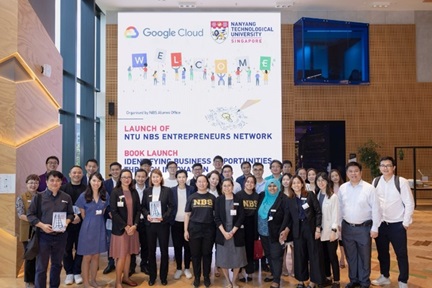Employers scramble as economic rebound fuels job-hop spree
Staff turnover is rising as the economy regains steam, with employers willing to hike remuneration to keep company talent on the payroll.
But structural challenges - such as pandemic-related travel restrictions and a longtime skills crunch - could leave turnover elevated in the medium term, as throwing money at the problem proves a stopgap solution.
The Ministry of Manpower (MOM) recently reported a seasonally adjusted resignation rate of 1.6 per cent in the second quarter - up from 1.2 per cent the year before, though still lower than 1.8 per cent in mid-2019.
The labour market has seen "a slight increase in attrition" in 2021, said Lee Lingxiang, principal consultant at recruiter Robert Walters, who told The Business Times that pent-up demand is driving a hiring boost.
Indeed, some 69 per cent of Singapore companies saw a marked increase in turnover in the first half, compared with the year-ago period, business services firm Mercer found.
Meanwhile, the British Chamber of Commerce (BritCham) found a 22 per cent drop in retention of high-performing local talent this year, and 17 per cent in foreign talent, in a recent survey of its members.
Border blues
Poaching has been a tried-and-true strategy in a tight market - and the trend "is driving up salaries for high-demand roles, especially in industries like technology, healthcare, life sciences, and research and development", said Mike Wilkshire, managing director at recruiter RGF Singapore.
Nilay Khandelwal, managing director, Michael Page, noted salary increases of as much as 25 per cent - especially for tech jobs such as fintech and e-commerce - compared with 10 per cent to 15 per cent in the past.
To stave off poachers, 44 per cent of companies are offering off-schedule pay adjustments, Mercer found. These adjustments mainly comprise higher base pay, but bigger allowances and bonus are also on the table.
That's as Mercer reward products leader Mansi Sabharwal told BT that demand for workers has become more broad-based than in the past, and "roles experiencing the highest turnover rates include engineering, sales, logistics, and supply chain".
Boh Wai Fong, deputy dean of Nanyang Business School's College of Business, said "the potential wave of turnovers might be impossible to prevent", as a recovering economy could be expected to see elevated turnover.
Similarly, Maybank Kim Eng senior economist Chua Hak Bin suggested that the imminent winding-down of wage subsidies is another factor in how "labour turnover has probably increased more significantly", as some firms let go of unsubsidised workers.
The unprecedented closure of Singapore's borders also has an outsized impact on the labour market.
Departure of foreign talent from Singapore fuelled turnover at 17 per cent of firms polled by Mercer, with Sabharwal adding: "We expect the elevated turnover to remain until 2022, but this is dependent on when border and immigration restrictions ease."
Still, the workforce has only so many workers to go around, as vacancies hit a record high of 92,100 in June - up from 68,400 in March - and the ratio of vacancies to unemployed people climbed from 0.96 to 1.63.
Ongoing talent shortage
The Covid-19 pandemic exacerbated an ongoing talent shortage.
Wilkshire told BT that the average time taken to fill a position has risen over the pandemic, as "the squeeze on Singapore's talent pool due to Covid-19 travel restrictions and foreign labour policies means that certain hard-to-find, niche skill sets are drastically increasing in demand".
"The situation has definitely been worsened by the strong push to hire locals, as employees need time to upskill," added Robert Walters' Lee, who also stressed that such reskilling is not taking place quickly enough, "especially at the mid- to senior level".
As such, the plan to woo workers with higher pay can go only so far, as employers grapple with a structural cap on the size of the labour force.
"Over half of all companies flagged the size of the talent pool as their main issue in recruiting local talent, a 24 per cent increase on 2020," the BritCham report said.
Recruiters instead called for holistic redesign of job scopes - to accommodate a growing focus on work-life balance and employee well-being.
Said Lee: "Salaries are a big part of a candidates' decision to leave or to stay but, increasingly, they are not seen as a deal-breaker. Most candidates evaluate the package in totality - that is, benefits, allowances, flexible work arrangements, and so forth."
Sabharwal also highlighted the risk of decline in competitiveness if hirers over-emphasise pay, as "it's not sustainable to continuously increase salaries with no productivity gains".
"While monetary measures are quick and easy solutions to the current talent crunch, the combined effect of increased hiring as replacements and salary adjustments to retain talent will boost people costs for employers," she told BT.
"Without any material gains in productivity, this can lead to wage inflation and pressure on margins for many organisations in the long run."
While reiterating that job seekers and employers are increasingly willing to invest in skills development, Terence Ho, an associate professor in practice at the Lee Kuan Yew School of Public Policy, said more needs to be done, as "structural support for reskilling will be key to a more flexible workforce".
In the meantime, Prof Boh also suggested that policymakers can help to absorb part of the cost in retraining staff to replace those who have quit.
High hiring
Turnover is likely to remain high for now, as Khandelwal from Michael Page noted that "the employment market is buoyant right now and we do not anticipate this trend to decrease".
That's as Mercer's survey found that replacement hiring drove 51 per cent of the ongoing recruitment frenzy, while the end of hiring freezes accounted for another 15 per cent.
Indeed, the seasonally adjusted recruitment rate picked up to 1.9 per cent in the second quarter, from 1.1 per cent the year before, according to the MOM data - although it is still lower than 2.2 per cent in mid-2019.
"In Asia-Pacific, Singapore is gaining importance on a daily basis, which means more companies would want to invest and expand here. This was witnessed even in a down market like 2020," Khandelwal added, saying that a combination of hiring from both new and established firms has created an inflated demand for talent.
Still, Maybank Kim Eng's Chua warned: "The tightening labour market may intensify wage competition for the limited pool of local workers and discourage firms from investing and expanding in Singapore. The government will have to speed up the reopening of borders and processing of foreign work permits for the economy to sustain its recovery in 2022."
Source: The Business Times














/enri-thumbnails/careeropportunities1f0caf1c-a12d-479c-be7c-3c04e085c617.tmb-mega-menu.jpg?Culture=en&sfvrsn=d7261e3b_1)

/cradle-thumbnails/research-capabilities1516d0ba63aa44f0b4ee77a8c05263b2.tmb-mega-menu.jpg?Culture=en&sfvrsn=1bc94f8_1)

7e6fdc03-9018-4d08-9a98-8a21acbc37ba.tmb-mega-menu.jpg?Culture=en&sfvrsn=7deaf618_1)




